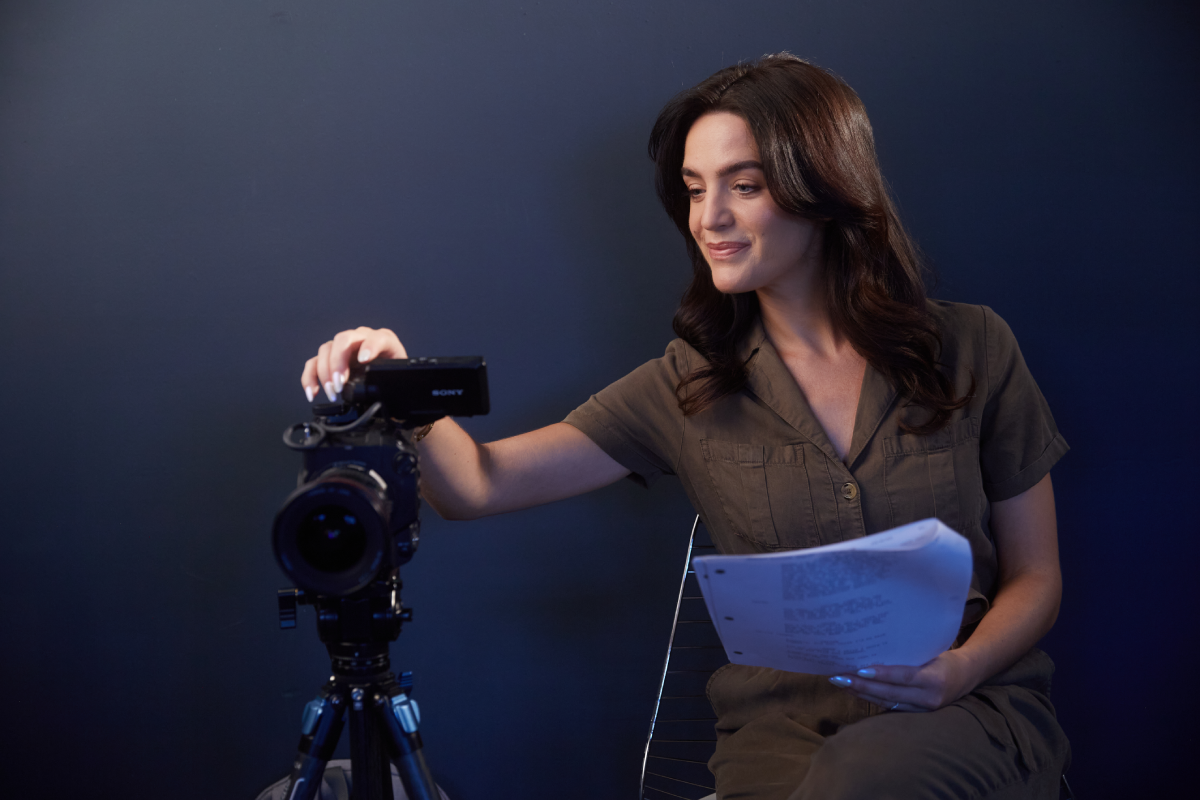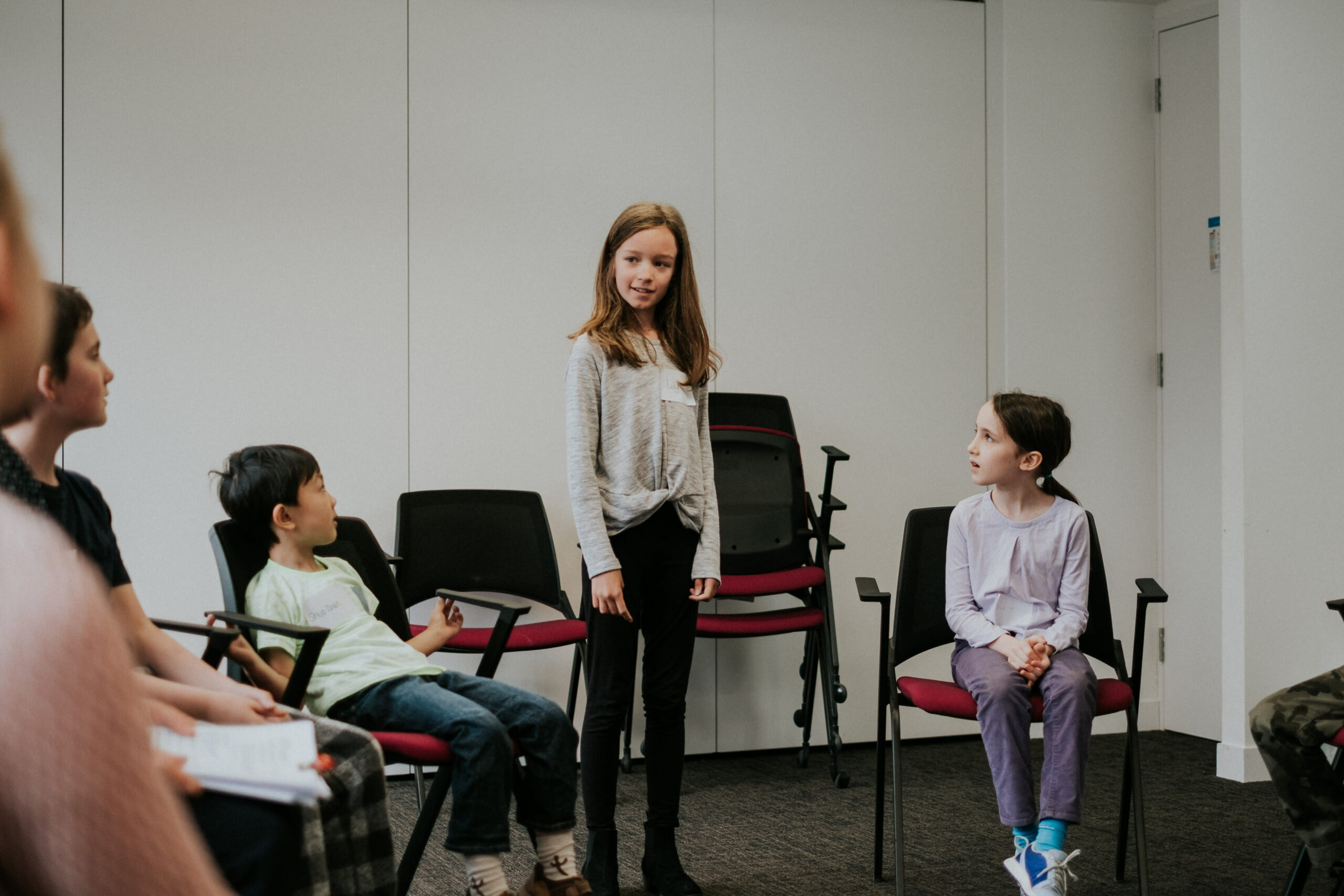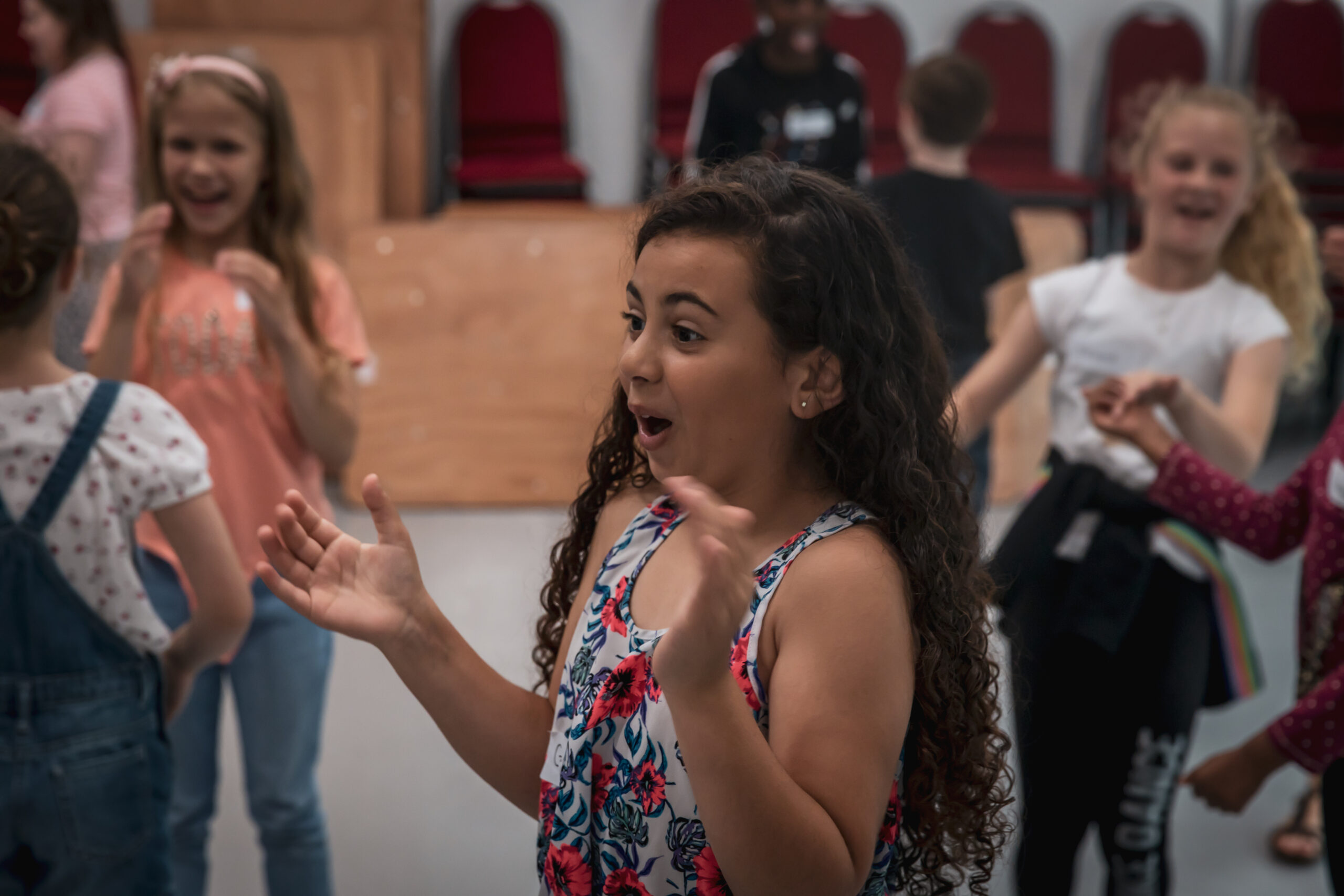Your questions answered from our one to one sessions with young performers and parents
Spotlight’s own Mel Brown and Ellie Samuels have been on hand to answer questions and offer support to our young performers and their parents. More one to one sessions will be held from April onwards on a weekly basis, so take a look here for more details if you’d like to come along and get some advice!
Young Performer Questions…
How do I make a good impression on a casting director?
Be friendly, well presented and committed to the audition. That means being on time, and making sure you are familiar with the script if there is one! Be confident in your approach and the decisions you make within the audition space, but try to remain as open as you can to direction – it’s important the casting director sees that you can take direction and run with new ideas. So make sure to always listen to what the casting director wants you to do. When you are nervous, you sometimes forget to relax and listen to the instructions that are being given to you!
It is also really important to be using an up to date photo on your profile, so the casting director recognises you when you walk into the room. Learn more about how to get the best headshot possible to reflect how you look. Try to be yourself – definitely hard to do when you’re nervous, so managing your nerves is key! Take a look at our guide to good etiquette to make best first impression possible, and read more about what casting director Amy Hubbard likes to see in the audition room.
How can I prepare for an audition without the script?
An audition without a script will most likely require improvisation – acting out a scenario, thinking on your feet! Practise makes perfect for this type of audition, so make the most of your improvisation classes! You can always practise this kind of thing at home too with friends: one can play the role of the casting director and the other the actor, setting each other a scenario and acting it out. Often commercial castings don’t have a script, but a setting that you’re in. You may be in the room with another person, so really listen to the brief you’re given, be yourself and focus on reacting to and working with the other actor/s. The more of these types of auditions you do, the more you get used to the energy and focus they require.
What should I wear to an audition?
Always be comfortable and able to move with ease in the clothes you wear. Know the colours that suit you and perhaps avoid things that are overly bright or patterned. Sometimes you might be advised by the casting director or your agent to have a particular look for the audition, but if not, it is best to remain comfortable and natural (and it goes without saying that the clothes should be clean and ironed!).
How can I develop open communication and a good relationship with my agent?
This is so important but not always the easiest thing to achieve! It is definitely best to think about it right from the start of the relationship with the agent, so you or your parent should feel confident to ask questions and have thoughts about how the relationship will work. Each agent has a different style of working, depending on how many clients they represent, how hands on they are or how much they like the parents or performers to be engaged and involved. The key thing to remember is it is a working relationship, whether you’re the parent/guardian or the performer, the relationship requires communication, trust and respect on both sides.
Read more from agent Nicola Bolton to get her insight, or read up on 5 Ways Towards A better Relationship With Your Agent.
Is it okay for me to directly contact casting directors?
Yes it is, but let your agent know, if you have one. You could get a list from them of the casting directors who’ve seen you in the past. Each casting director has their own preferences, but an email is a safe bet, rather than contacting direct on social media. If you do decide to email, make it personable, concise, informed (in other words, know who you’re contacting and why – perhaps you’ve recently auditioned for them and did well, but then didn’t quite get the job, perhaps you’ve been cast by them in the past and want to remind them!). Make sure you know what they’ve cast recently, and think about why you are contacting them specifically.
How do I look for a different agent?
Always make sure you’ve had a good chat with your current agent first, if you can. It’s better to be open, communicative and to know you’ve really worked at the current relationship before trying to move on to the next. It’s a small world and your current agent might be best mates with the one you’re about to contact! It is regular practice for people to change agents, so don’t feel bad about it, just make sure you know why you’re wanting to move and therefore what could be better next time. It may be that your agent feels the same, that things aren’t quite working and that it’s time to both move on.
Select agents you want to approach, think about the reasons they might suit you (e.g. you like their client list, think there’s possibly a gap on their books for someone like you, etc). You may have just worked with someone who’s represented by them and can therefore refer to the production. Just make sure the emails don’t sound like a mass mail out, find a personable tone in the way you write and keep it informed and concise too.
For a first person account of navigating the world of agents and being a young performer, take a look at our interview with Seraphina Beh. If you’re looking for a list of agents to consider, check out Contacts.
I’m with a small/new agent – how can I increase my work opportunities?
Keep a good line of communication with your agent about what castings they’ve put you forward for, so you know who’s casting what. You can start to approach casting directors on their industry relationships too and help build relationships. Being with a smaller agency or a new agent can be a great thing, as they are filled with enthusiasm and energy and a strong focus on networking – they might also have more time to dedicate to you! In the mean time, keep doing classes and meeting other actors, finding out about work, short films, fringe theatre and so on! Read all about all the ways you can make great work, and all our advice for maximising opportunities as you’re getting started.
How do I get myself noticed and get more auditions?
Make sure your profile is always up to date, make sure you’re listing a realistic playing age, include a strong headshot (here are some tips for picking the best one!), and include video clips if you have professional footage. Always be on time for castings and well-prepped, be yourself, confident and friendly, easy to work with, and try to show that you can take direction well.
Good auditions can breed more auditions, even if they don’t always become a job – read more about 5 top ways you can make the most of your audition experience. A good impression with a casting director will make them remember you for future projects. Keep in touch with what’s going on, see as much theatre and film as you can. Know what’s going on in the industry. Communicate with your agent on a regular basis about what’s being cast, the things you both think you’re right for. See more from our site about how to stand out from the crowd!

Parent Questions…
If you haven’t already, take a look at our Guide for Parents: Everything You Need to Know About the Industry, which is a great place to start to get to grips with what your child will likely encounter as they navigate this tough business!
Should I make social media accounts (e.g. a Twitter account) for my child?
Think carefully before engaging in world of social media on behalf of your child. Definitely seek advice from the agent first, and let them guide you on this. It is always better for your child to figure out their online presence as they start to get older – we have some great tips about how they can get started on social media. Otherwise, let your child’s agent guide you.
Should my child do amateur work and include this work on their CV?
Any acting experience is a good thing as a child. The main thing to think about is making sure that the agent is aware the child is doing this work, so they know the child’s availability for auditions and any potential professional commitments. It’s also important so that they can advise on what is relevant for inclusion on a CV. A Spotlight profile is best used to display professional work only, but have a chat with the agent and see what they think too! We have a lot of great advice on how to edit a young performer’s profile and maximise their Spotlight membership.
My child has done some great work – how can I maximise their exposure, or get them a better agent?
Again, always discuss this with the current agent if you can. They may already be experienced in handling clients who have been elevated into the limelight by a particular high profile job, and therefore they will be able to manage your child’s career, media attention, any press, etc! If you then still want to find a new agent – a more ‘adult’ agent – then seek advice and recommendations from people who have been through the same journey. Research agents who have represented well-known child actors in the past, as a starting point.
Are there any particular courses that are recommended for my child wanting to become a performer?
We have a lot of great advice on training opportunities for aspiring performers online, including plenty of insight into drama schools and alternative training programmes. Take a look at the changes to our criteria for those who wish to become student members in future! Here are a few choices sources of advice:
- On getting A Degree vs Drama School Training
- On the Pros and Cons of Formal Training
- On Alternative Training with Fourth Monkey
- On training with the NYT’s Playing Up
- On training with the NYT’s REP season
If you have any other questions, be sure to join Ellie and Mel at their next one to one session!
Ellie is the dedicated account manager for young performers and her extensive experience in the industry – as a performer in musical theatre, a teacher at Pineapple Dance Studios and over 14 years at Spotlight – makes her the ideal person to guide you on the ins and outs of the performing arts. Mel comes from five years of experience as an agent for young performers. She graduated in drama from Loughborough University and then moved straight into the industry. Sessions with Ellie and Mel are available in person at Spotlight HQ London, over the phone or on Skype.



















